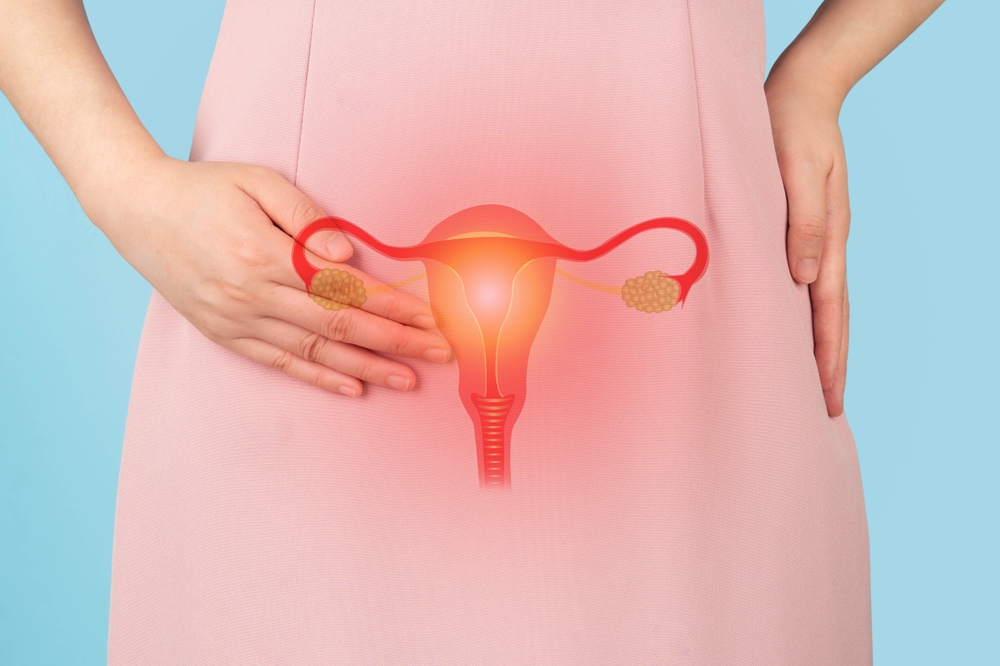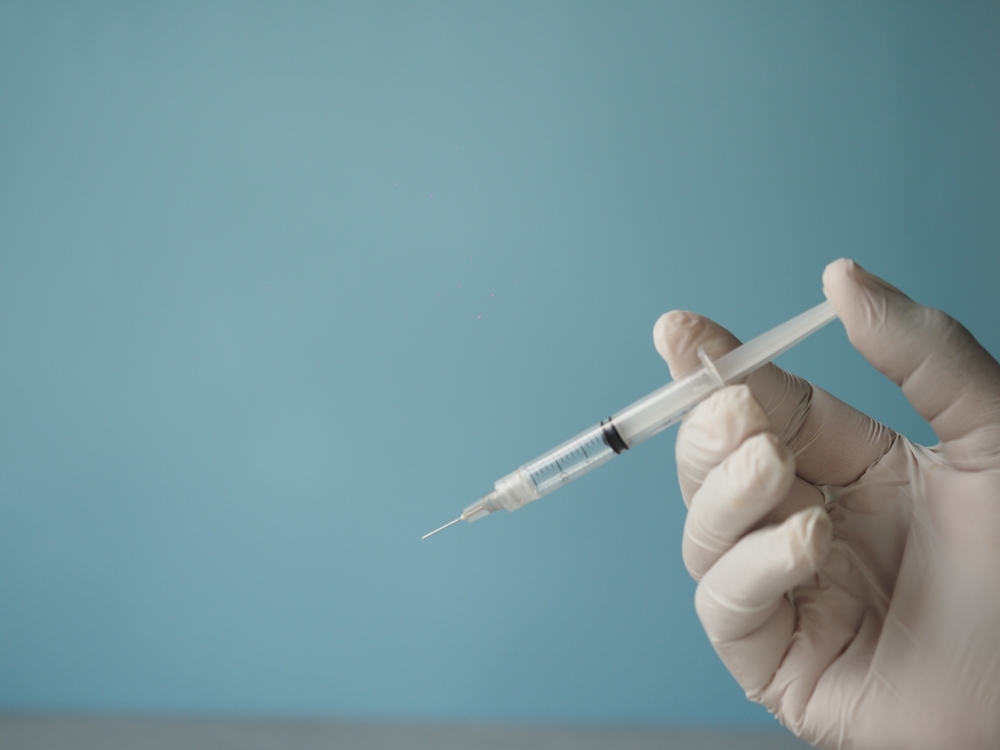Tracey Dennison discusses skin integrity and integrative aesthetic–endocrine management with Polycystic Ovary Syndrome (PCOS)
PCOS affects up to 13% of women of reproductive age. It presents with menstrual irregularities, insulin resistance, androgen excess, and a range of aesthetic concerns, such as acne, hirsutism, and hair thinning.
Standard treatments, including Combined Oral Contraceptives (COCs), retinoids, and hair removal methods, effectively target symptoms but can compromise skin integrity, potentially accelerating dermatological ageing.
What is PCOS?
PCOS is diagnosed using the Rotterdam criteria, which require two out of the following three features: ovulatory dysfunction, hyperandrogenism (clinical or biochemical), and polycystic ovarian morphology.
The syndrome has multifaceted effects on reproductive, metabolic, and psychological health. In everyday clinical practice, patients frequently present with cosmetic concerns – particularly acne, excessive facial hair, and diffuse scalp hair thinning – symptoms underpinned by androgen excess and insulin resistance.
These dermatological issues often serve as both diagnostic cues and key motivators for seeking medical care. However, medicinal care alone leaves the patient in a state of suboptimal disease management, which is why considering lifestyle impacts, in particular, the Pillars of Lifestyle Medicine, as per the British Society of Lifestyle Medicine, is essential in providing optimal patient care.
How can diet support PCOS symptoms?
Whole-food, anti-inflammatory diets, diets rich in whole grains, healthy fats (e.g., oily fish, olive oil), lean protein, and fibre-rich vegetables – such as Mediterranean and low-GI dietary patterns – have been shown in RCTs to lower HOMA-IR, reduce fasting insulin and testosterone, restore menstrual cyclicity, and enhance skin quality in women with PCOS.
Concurrently, omega-3 PUFA supplementation has demonstrated significant reductions in HOMA-IR, serum lipids, CRP, LH, testosterone, and increases in SHBG and antioxidant capacity based on meta-analyses of multiple RCTs.
Furthermore, omega-3 fatty acids from oily fish have been associated with significant improvements in HOMA-IR, lipid profiles, C-reactive protein, total testosterone, and SHBG levels, according to a 2023 meta-analysis of randomised controlled trials.
How can physical activity support PCOS symptoms?
Structured aerobic and resistance training, totalling at least 150 minutes per week, has a direct effect on reducing insulin resistance, improving ovulatory function, and supporting mood.
Regular exercise also benefits skin health by enhancing vascular perfusion and mitochondrial function.
Exercise interventions have demonstrated mental health benefits in half of the clinical PCOS trials and improved depressive and anxiety symptoms in cross-sectional studies.
Physical activity is also consistently associated with lower rates of depression in PCOS cohorts.
How can the quality of sleep improve PCOS symptoms?
Sleep disturbances are prevalent in PCOS and contribute to insulin resistance, increased cortisol, and disrupted endocrine rhythms. Improving sleep through sleep hygiene interventions and treating underlying conditions such as obstructive sleep apnoea can restore hormonal balance and improve skin appearance and health.
How can managing stress improve PCOS symptoms?
Chronic psychological stress is a known driver of cortisol excess, which further disrupts insulin metabolism and ovarian function. It also contributes to premature ageing through inflammatory pathways.
Mindfulness-based interventions, cognitive behavioural therapy, and yoga have all demonstrated benefit in reducing PCOS-related distress and improving clinical outcomes.
How can substances worsen PCOS symptoms?
Cigarette smoking worsens insulin resistance, promotes oxidative stress, and contributes to both androgenic activity and dermal collagen breakdown, thereby exacerbating both PCOS and skin ageing.
Even moderate alcohol intake can worsen liver steatosis, reduce insulin sensitivity, and disrupt sleep, thereby worsening the hormonal and aesthetic manifestations of PCOS.
How can social support improve PCOS symptoms?
A strong social network improves adherence to treatment plans, reduces stress-related hormonal dysregulation, and supports long-term behavioural change. Patients with strong relational support often demonstrate better emotional and dermatological outcomes.
How can reducing environmental toxins support PCOS symptoms?
Avoiding endocrine-disrupting chemicals such as parabens, phthalates, and pesticides supports hormonal homeostasis and reduces dermal reactivity and inflammation.
What medical and aesthetic therapies can support PCOS symptoms?
Combined Oral Contraceptives (COCs) – particularly those containing drospirenone – effectively lower free testosterone and increase sex hormone-binding globulin (SHBG), improving hirsutism and acne.
Anti-androgens – such as spironolactone and cyproterone acetate –are effective for more severe androgenic symptoms, although long-term use may lead to skin dryness or irritation.
Metformin not only improves metabolic and endocrine parameters in PCOS but has also been shown to protect against skin photo-ageing and support dermal regeneration. A 2022 study demonstrated that metformin attenuates UVA-induced skin ageing by inhibiting mitophagy and the PI3K/AKT/mTOR pathway, thus reducing dermal collagen degradation, improving epidermal thickness, and enhancing skin integrity in both in vitro human dermal fibroblast cultures and in vivo animal models. Furthermore, in a 2022 rat model study, topical metformin improved dermal collagen deposition, re-epithelialisation, and micro-vascularisation, supporting healing in mechanically stretched skin. Isotretinoin – though highly effective for cystic acne – frequently causes mucocutaneous dryness, skin fragility, and increased photosensitivity.
Topical retinoids remain a cornerstone of acne and anti-ageing therapy, but may significantly impair the skin barrier if not carefully managed. A 2019 systematic review found that while retinoids substantially improve acne severity and texture, 28– 60% of patients experience adverse effects such as erythema, flaking, burning, and photosensitivity – particularly in the first four weeks of therapy.
What are the side effects of medical and aesthetic therapies?
Isotretinoin or overusing topical retinoids can cause skin barrier disruption, leading to dryness, increased trans-epidermal water loss, and flaking.
The use of retinoids and waxing-based hair removal can cause photosensitivity and erythema.
Post-inflammatory hyperpigmentation and folliculitis are common after frequent waxing, especially in individuals with darker skin tones.
Oxidative stress, steroid use, and unprotected UV exposure can result in collagen breakdown.
How can supplements and botanicals support PCOS symptoms?
Mint tea (spearmint) has been shown in randomised controlled trials to lower free and total testosterone and improve hirsutism and acne severity in women with PCOS.
Vitamin D, omega 3 fatty acids, and inositol are the most commonly used and promising supplements among women with PCOS, with emerging evidence for cinnamon, curcumin, sage, and fennel, all of which support glycaemic control, inflammation reduction, and menstrual regulation.
Omega-3 fatty acids and melatonin provide additional anti-inflammatory and hormonal regulation, improving both systemic health and dermal appearance.
Supplementation needs to be undertaken with care and individualised to specific patient needs, appreciating the trials in supplements are usually small scale and that supplement quality, efficacy, and bioavailability can vary greatly between manufacturers. Respect also needs to be given to dosage and clearance mechanisms in order to keep our patients safe.
Clinical case study: A peri-menopausal, 48-year-old patient presented with PCOS
The patient had symptoms of androgenisation, including hirsutism, which was causing significant psychological distress.
During her consultation, we discussed the benefits of lifestyle interventions such as stress management, reduced toxins (ingested and environmental), and made changes to her diet, supplements, and skin routines. We also tried increasing the patient’s uptake of spearmint tea.
Following diligent compliance with all recommendations, the patient was reviewed four months later. At this point, her facial hair growth had markedly reduced, and other troublesome androgenic features, specifically hair loss, were seen to be improving. The patient’s mental health was improving as a result of her perceived improvement in her physical appearance. In conjunction with the patient’s Primary Care GP, we then looked to include a drospirenone progesterone only pill for its anti-androgenic impact, alongside Metformin to improve her insulin sensitivity. A significant positive impact was made on the patients ‘ physical, social, psychological, and spiritual well-being as a direct result of this fully holistic management plan.
What is the best method for treating PCOS?
Managing PCOS requires an integrated approach that addresses the endocrine, metabolic, and aesthetic domains of patient care.
Lifestyle medicine offers a powerful, evidence-based foundation, while targeted pharmacotherapy and supplements should be carefully chosen to minimise side effects and maximise outcomes.
Equally important is safeguarding the skin from iatrogenic damage – particularly in a patient population already vulnerable to dermatological distress. Clinicians should adopt a proactive stance in skincare education, individualised treatment planning, and the careful selection of aesthetic interventions to promote enduring health and confidence.
Tracey Denninson

Tracey Dennison is the Consultant Nurse Practitioner at East Riding Aesthetics & Wellness, a multi-award-winning clinic which specialises in lifestyle medicine and menopause care alongside restorative and regenerative medical aesthetic treatments. Tracey has been nursing for over 30 years and is the Aesthetic Medicine Award’s Nurse of the Year 2023. She is a BMS Advanced Specialist trained in Lifestyle Medicine (BSLM).




square.JPG)